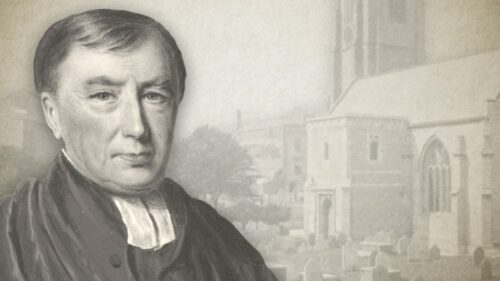
October 22—Morning Devotion
“The Lord will command his loving-kindness in the day-time, and in the night his song shall be with me, and my prayer unto the God of my life.”—Psalm 42:8
Both night and day open sources of comfort, when Jesus is present, and when Jesus sanctifies. How, indeed, my soul, canst thou be otherwise than comfortable, while Jesus is with thee, and manifesting himself unto thee? And do observe, my soul, the sweet expression in this verse. Thy Lord, thy Jesus, will both create blessings and command them. His loving-kindness, which is better than life itself will make daylight in the soul, when otherwise it is night. And his love will shine, as the stars in the darkest night sparkle with more lustre, with increasing brightness, when dark providences are around. Nay, Jesus will give songs in the night, when all things else are out of tune. Do thou, Lord, do thou, my Lord, command then thy loving-kindness both by day and night, and my prayer and praise shall both go forth to thee, the God of my life; and “It shall put more gladness in my heart, than when corn, and wine, and oil increase.”
Robert Hawker (1753-1827) was an Anglican (High-Calvinist) preacher who served as Vicar of Charles Church, Plymouth. John Hazelton wrote of him:
“The prominent features…in Robert Hawker's testimony…was the Person of Christ….Dr. Hawker delighted to speak of his Lord as "My most glorious Christ.” What anxious heart but finds at times in the perusal of the doctor's writings a measure of relief, a softening, and a mellowing? an almost imperceptible yet secret and constraining power in leading out of self and off from the misery and bondage of the flesh into a contemplation of the Person and preciousness of Christ as "the chiefest among ten thousand and the altogether lovely." Christ and Him crucified was emphatically the burden of his song and the keynote of his ministry. He preached his last sermon in Charles Church on March 18th, 1827, and on April 6th he died, after being six years curate and forty-three years vicar of the parish. On the last day of his life he repeated a part of Ephesians 1, from the 6th to the 12th verses, and as he proceeded he enlarged on the verses, but dwelt more fully on these words: "To the praise of His glory Who first trusted in Christ." He paused and asked, "Who first trusted in Christ?" And then made this answer: "It was God the Father Who first trusted in Christ."
Robert Hawker on the Biblical Covenants (Complete)
Robert Hawker's Poor Man's Morning Portions





